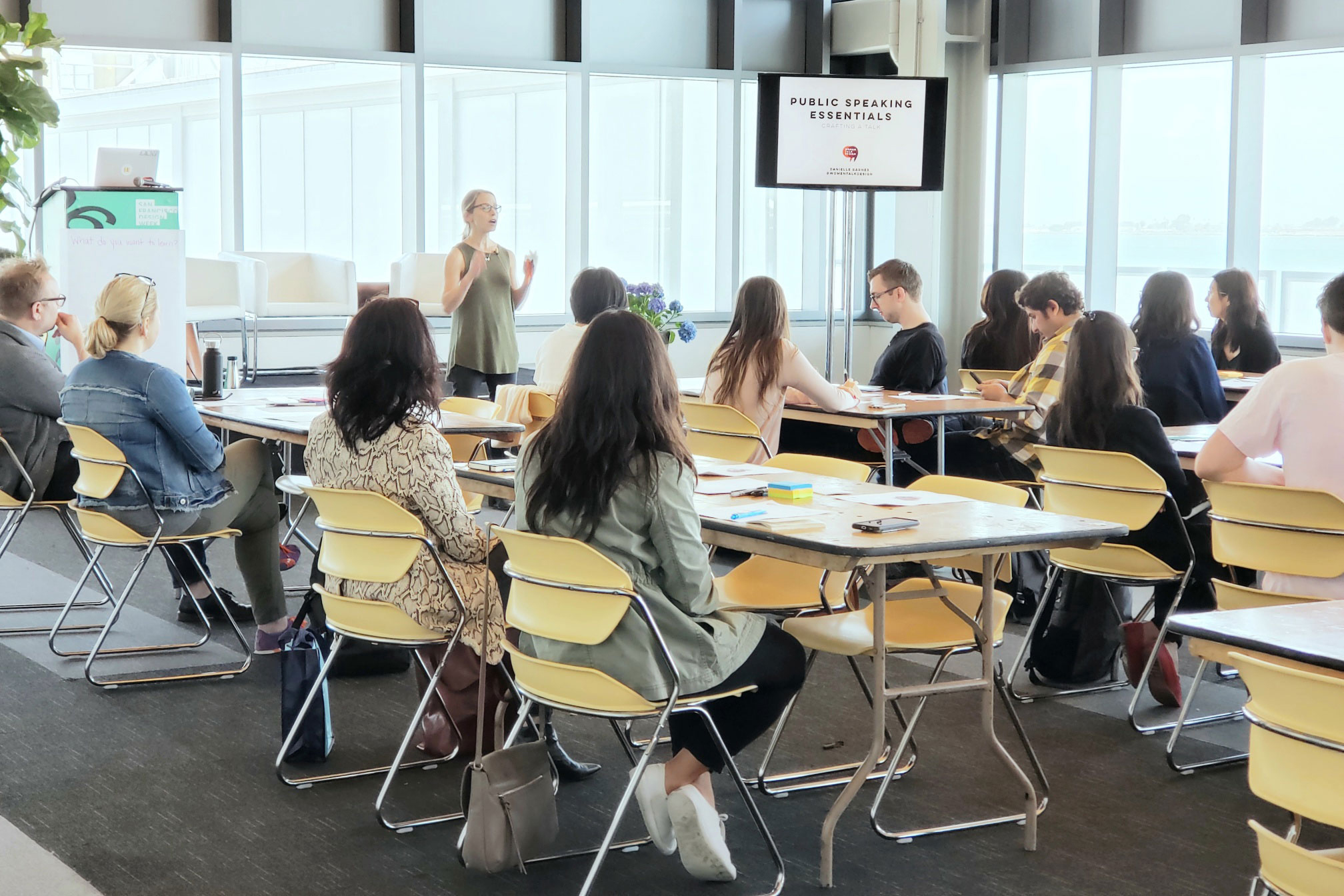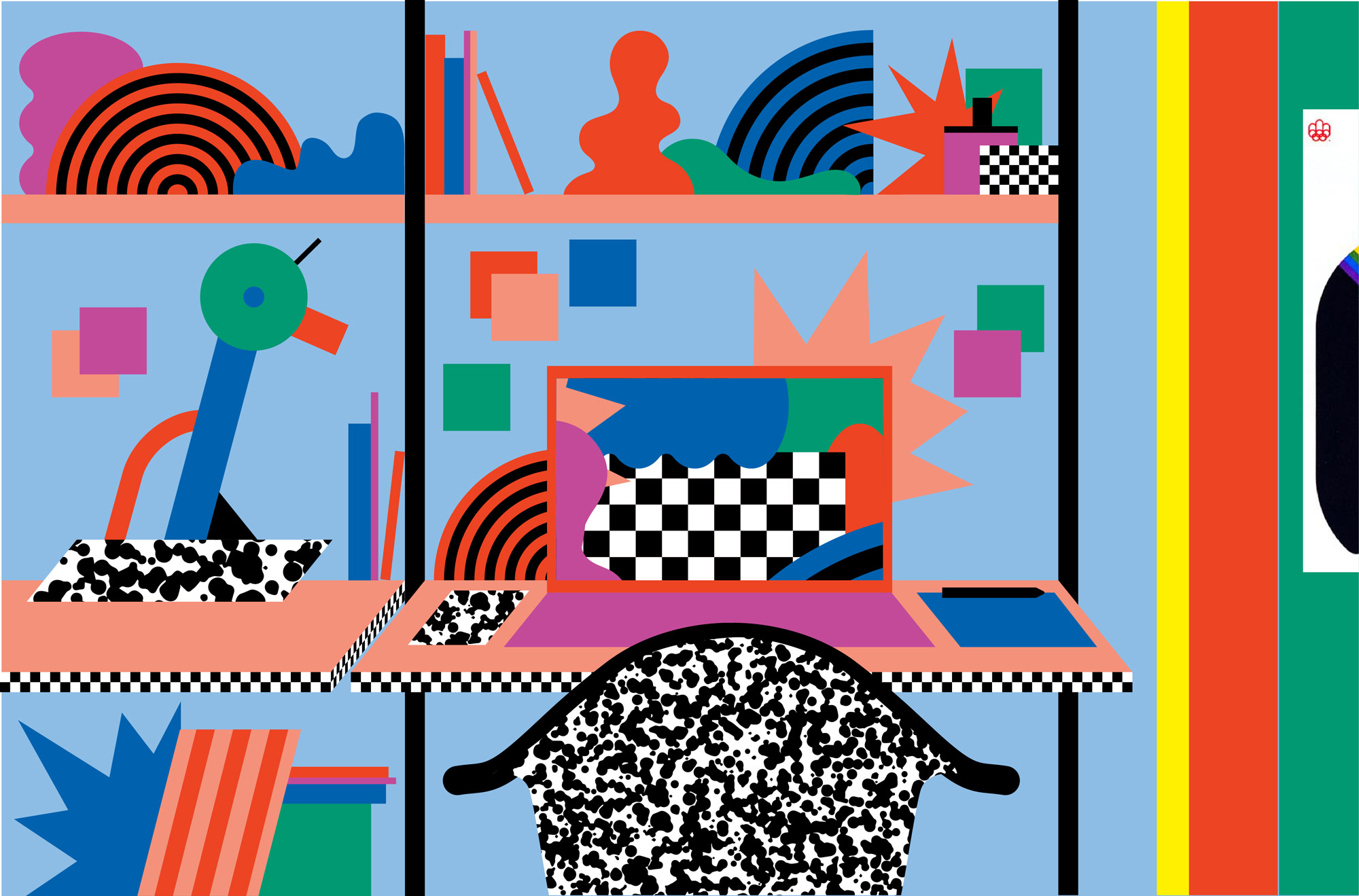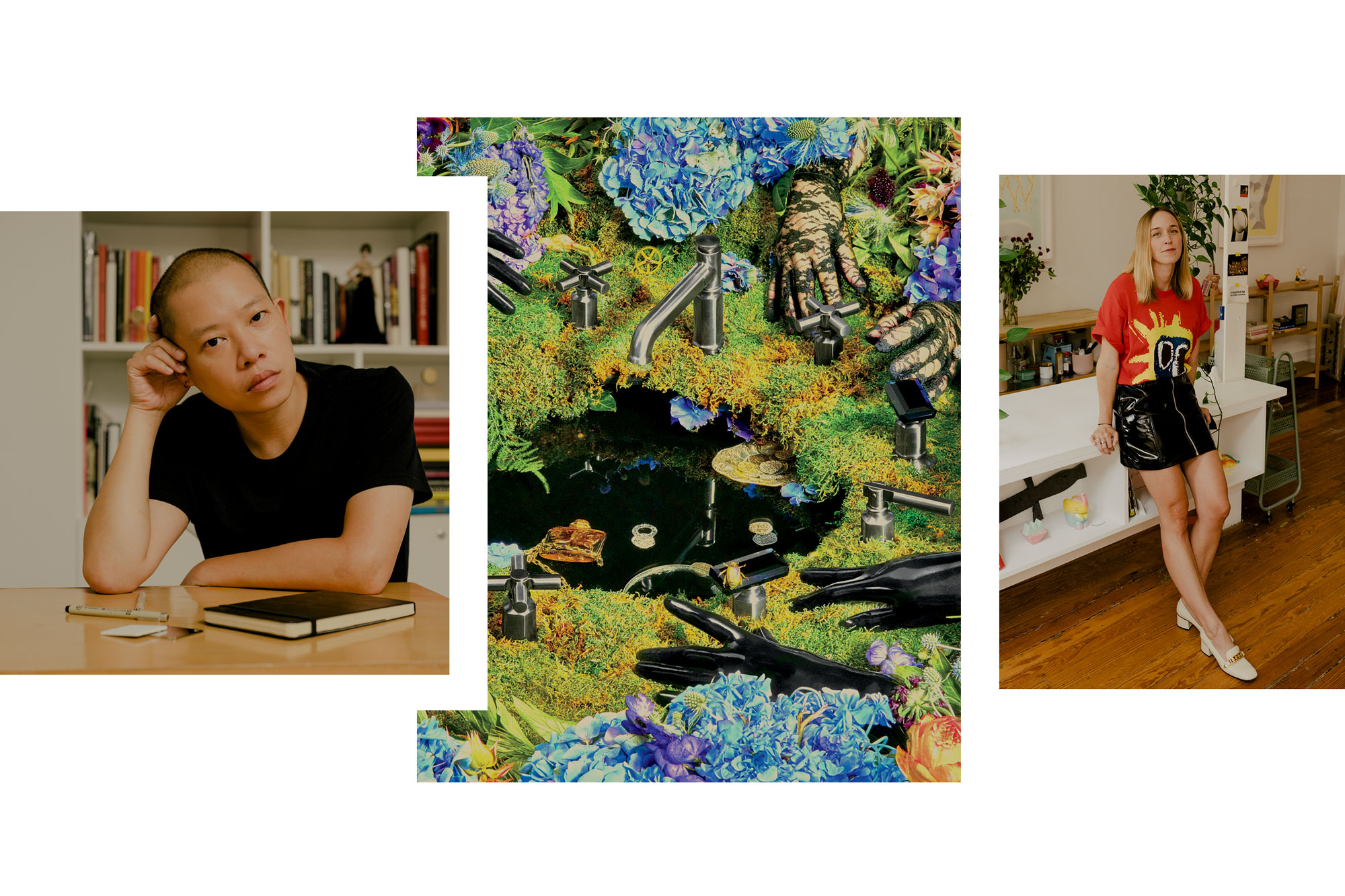Danielle Barnes became the CEO of Women Talk Design in 2017, years after befriending and sitting in on UX design classes led by its founder, Christina Wodtke. The two bonded over the need to see more women and non-binary speakers onstage, especially as Christina was frustrated from her own experience often being the only woman speaker at conferences. We talked to Danielle about overcoming stage fright, not being afraid to be vulnerable, and other tips for captivating audiences.
***
Invite people into your process.
So often we get caught up in our heads and think, “Who cares what I have to say?” Or “Everyone knows this already.” As you start to share with other people you hear, “Oh, that’s so interesting. I never heard that perspective before” or “I’ve had this same problem. How did you deal with it?” Share early and often, which is terrifying because you’re like, ‘I haven’t figured out my idea yet; I don’t even know if this is interesting,’ but that’s the way to figure it out, right? Designers know how important it is to get feedback early and often—especially from users.
Rethink your audience.
If you feel like you don’t have the experience, consider speaking to your past self—who might that be? Maybe speaking to people who are just entering the field or who are in university or in primary or secondary education makes sense. If you find the right audience it really opens up the topics you can talk about.
Remember to breathe.
One of the simplest but maybe most underrated pieces of advice is to allow yourself to pause and take a deep breath. A lot of times when you’re asked a question you feel like you need to say something right away and it doesn’t give you a moment to collect your thoughts. When the focus is on you, time feels warped—taking a second feels like a minute and you think, “I can’t keep people waiting this long.” Our breath is such a powerful tool to calm your body and give you that moment to collect your thoughts. I have an instructor who will say, “Use this opportunity to grab a drink of water and buy yourself some time.” Give yourself permission to take a couple moments and think through the answer. It makes a difference.
Related | Chris Rowson on How to Pitch Your Work
Ask for help.
One of the big lessons I’ve learned is to ask for help. This happens a lot with speaking, too. People are too nervous to ask someone else early on because they don’t want to share their ideas while they’re in progress, but having some conversations now with speakers or other businesswomen helps. I’m like, “Oh. I should have sought out asking these questions earlier rather than trying to figure it out on my own and feeling really alone in it.”
Get personal.
We teach a lot about storytelling. Our brain is wired to respond to story; it could be about anything, but I think a personal story is that much more powerful because it helps the audience connect to you. Having a story and a clear call to action is really powerful. At the end of every talk think, “What do you want people to do from here?” It’s important to tell your audience what to do. This could come partly from storytelling or this could be in part through other means, like allowing yourself to connect with the audience and be vulnerable. The audience wants you to succeed. There are very few situations in which they don’t, and when they see a bit of humanity in you, they’re that much more inspired to cheer you on.
Related | 6 Creatives on What They Wish They Knew Years Earlier
It’s OK to be nervous.
I’ve been a cheerleader, a camp counselor, an exercise instructor—throughout my life I’ve exuded confidence, but I still get nervous every time I speak. Every type of engagement is different, and you have to understand how to prepare for that, whether it’s an off the cuff discussion or going to be on a panel. I work with a lot of events and one of them is the Women Talk Conferences Panel, where the goal is to highlight a really incredible group of women designers from different disciplines with different levels of speaking experience. They share how they got started and so many of them say “I’ve given 100 talks and I still get nervous.”



